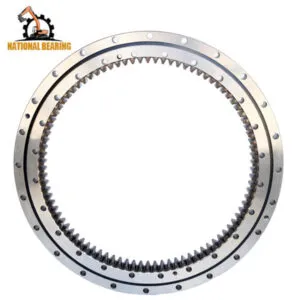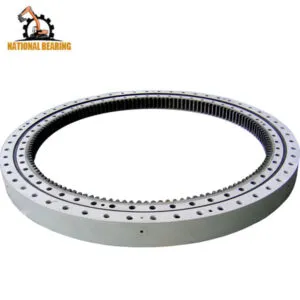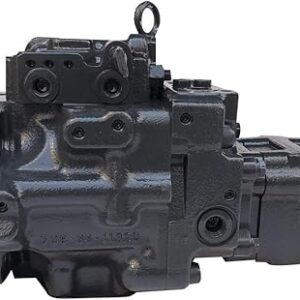
In the world of heavy machinery, excavators play a pivotal role in construction and mining operations. These robust machines rely on complex hydraulic systems to power their movements, with the main pump serving as a critical component. Understanding the lifespan and maintenance of components like the Bomba principal Komatsu PC1250-8 708-2L-00680 is essential for optimizing performance and longevity. This blog delves into the lifespan of this specific main pump, its maintenance requirements, and how to extend its lifespan through proper care and maintenance practices.
The lifespan of the Komatsu PC1250-8 Main Pump 708-2L-00680 depends on various factors such as operating conditions, maintenance practices, and the quality of hydraulic fluid used. Generally, under normal operating conditions and with proper maintenance, the main pump can last anywhere from 8,000 to 12,000 hours of operation. However, this estimate can vary significantly based on how the excavator is used and maintained.
Regular inspections are crucial to identifying potential issues early. Inspect the main pump for leaks, unusual noises, and performance inconsistencies. Addressing small problems promptly can prevent them from escalating and causing major damage.
Maintaining high-quality hydraulic fluid is essential for the longevity of the main pump. Contaminated or degraded fluid can accelerate wear and damage internal components. Follow manufacturer recommendations for fluid type and change intervals.
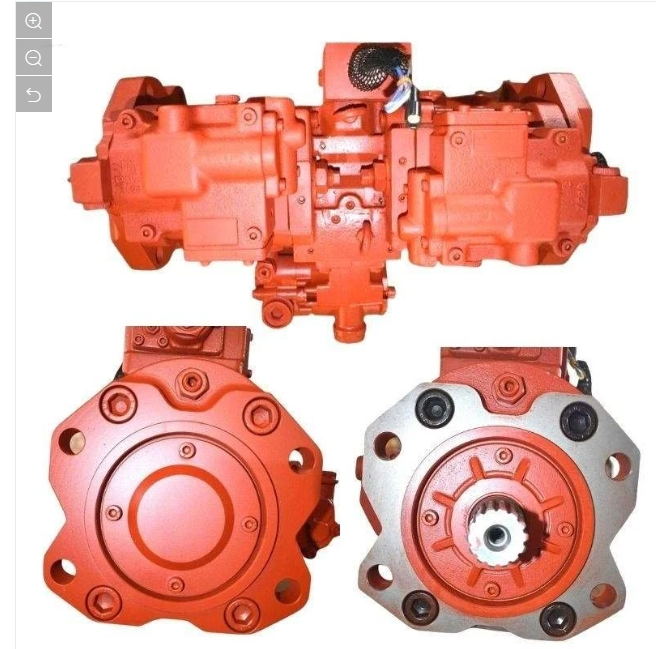
Monitor hydraulic system temperatures and pressures regularly. High temperatures and pressures can indicate potential issues with the main pump or other hydraulic components. Keeping these within recommended ranges can extend the pump’s lifespan.
Proper lubrication and greasing of all moving parts connected to the main pump are essential for reducing friction and minimizing wear. It is crucial to use the recommended grease and lubricants specified by the manufacturer to ensure compatibility and optimal performance. The right amount of lubrication can significantly extend the lifespan of the main pump by ensuring smooth operation and preventing metal-to-metal contact, which can cause severe damage over time.
Over-greasing or under-greasing is a common mistake that can lead to premature wear and pump failure. Over-greasing can cause excess lubricant to build up, attracting dirt and debris that can contaminate the system. This contamination can lead to increased wear and tear on the pump components. On the other hand, under-greasing results in inadequate lubrication, causing increased friction and heat, which can accelerate the degradation of the pump components.
To ensure proper lubrication, establish a regular maintenance schedule that includes checking and replenishing grease and lubricants as needed. Pay close attention to manufacturer guidelines regarding the type and amount of lubricant to be used. Additionally, consider the operating conditions of the excavator, such as temperature and workload, as these factors can influence the frequency and amount of lubrication required. Regular monitoring and adjustment of lubrication practices can prevent unnecessary wear and prolong the life of the main pump and other connected components.
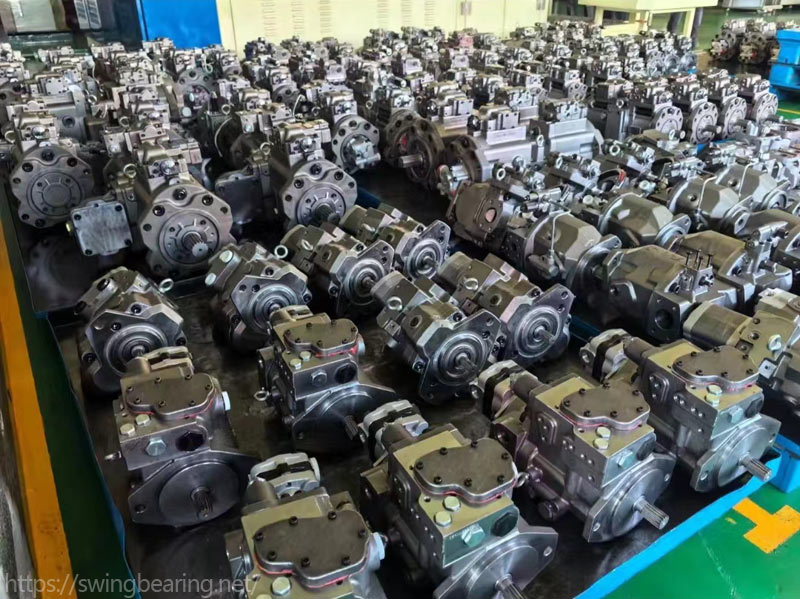
Maintaining and replacing hydraulic filters according to the recommended schedule is critical for ensuring the longevity and efficient operation of the main pump. Clean filters play a vital role in removing contaminants from the hydraulic system, preventing them from circulating and causing damage to the main pump and other components. Contaminants such as dirt, metal particles, and degraded hydraulic fluid can significantly impact the performance and lifespan of the hydraulic system.
To effectively maintain hydraulic filters, establish a routine inspection and replacement schedule based on the manufacturer’s recommendations. Typically, hydraulic filters should be inspected and cleaned or replaced every 500 to 1,000 hours of operation, depending on the operating environment and conditions. In particularly harsh or dusty environments, more frequent inspections and replacements may be necessary.
During filter maintenance, ensure that the hydraulic system is properly depressurized before removing and replacing filters. This step is crucial for safety and preventing hydraulic fluid from spilling. Once the old filters are removed, clean the filter housing thoroughly to remove any residual contaminants. Install new filters that meet the manufacturer’s specifications, ensuring they are properly seated and sealed to prevent leaks.
Regular filter maintenance not only protects the main pump but also enhances the overall efficiency and reliability of the hydraulic system. By preventing contaminants from entering the system, you reduce the risk of component wear, improve fluid flow, and maintain optimal hydraulic performance. This proactive approach to filter maintenance can lead to longer equipment life, reduced downtime, and lower maintenance costs.
The lifespan of the Komatsu PC1250-8 Main Pump 708-2L-00680 can be significantly extended through diligent maintenance practices. Regular inspections, monitoring fluid quality, and adhering to operational guidelines are essential. By investing in proactive maintenance, operators can minimize downtime, reduce repair costs, and maximize the efficiency and longevity of their excavator’s main pump.
Q: What are the signs that the Komatsu PC1250-8 Main Pump 708-2L-00680 is failing?
A: Signs include decreased hydraulic performance, unusual noises, fluid leaks, and increased operating temperatures. Prompt action should be taken upon noticing these symptoms to prevent further damage.
Q: How often should the hydraulic fluid be replaced in the Komatsu PC1250-8 excavator?
A: Hydraulic fluid replacement frequency should align with manufacturer recommendations, typically every 1,000 to 2,000 hours of operation or sooner if operating in harsh conditions.
Q: Can the lifespan of the main pump be extended with proper maintenance?
A: Yes, diligent maintenance practices such as regular inspections, proper lubrication, and monitoring hydraulic fluid quality can significantly extend the lifespan of the main pump.
Q: What should be included in routine maintenance checks for the main pump?
A: Routine maintenance should include inspecting for leaks, checking fluid levels and quality, monitoring temperature and pressure readings, and ensuring all filters are clean and functioning properly.
Q: How can operators prevent overheating of the main pump?
A: Operators should monitor hydraulic fluid temperatures closely, ensure proper ventilation and cooling, and promptly address any issues that could lead to overheating, such as clogged filters or restricted airflow.
